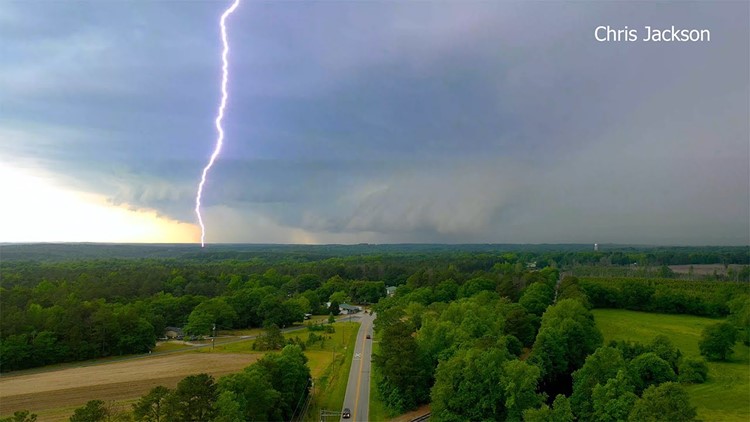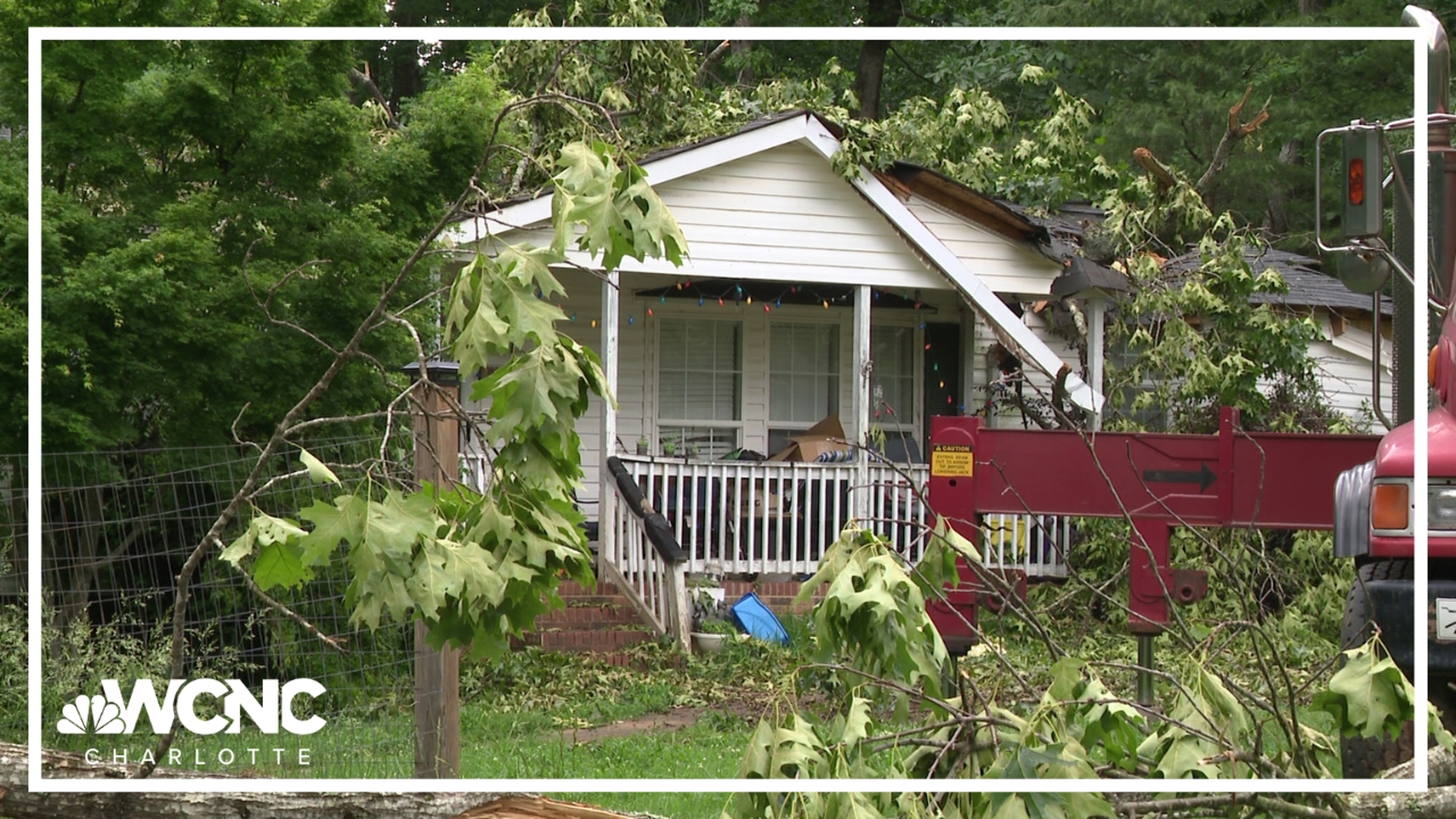CHARLOTTE, N.C. — Lightning is fascinating to see but extremely dangerous.
There are about 25 million lightning flashes in the United States every year. And any one of those can be deadly.
Lightning kills an average of 49 people each year in the United States and hundreds more are injured. Lightning is five times hotter than the surface of the sun and can reach temperatures that are nearly 50,000 degrees Fahrenheit.
Lightning mostly occurs in the summer, but people can be struck any time of year.
There are two kinds of lightning strikes:
- A negative strike, which comes from the bottom of the cloud and hits the ground below.
- And positive strikes, which are much stronger and come from the top of the cloud and can travel a longer distance.
Meteorologist Trisha Palmer with the National Weather Service says that’s why these sometimes come as a surprise.
“Not only are they far more powerful, but because they sometimes come out of the blue, you’re not having the rain, you’re not maybe hearing as much thunder, it’s a bit of a surprise and people aren’t prepared for those," Palmer said. "So you sort of have a double whammy there.”
That’s why if you hear thunder, you are close enough to be struck by lightning. So when thunder roars, go indoors.
Now to figure out how close a lightning strike is to you, you’ll want to count the number of seconds between the flash of lightning and the sound of thunder. Then divide that by five, and you'll get the distance in miles from you to the lightning.
Remember, you should be in your safe place while counting.
A few other things to keep in mind to protect yourself and your family from lightning:
- Avoid open spaces or the top of hills.
- Stay away from tall isolated trees or other tall objects.
- If you’re in a group, spread out to avoid the current traveling between people
- Stay away from water and metal objects.
- While water and metal do not attract lightning, they are great conductors of electricity.



